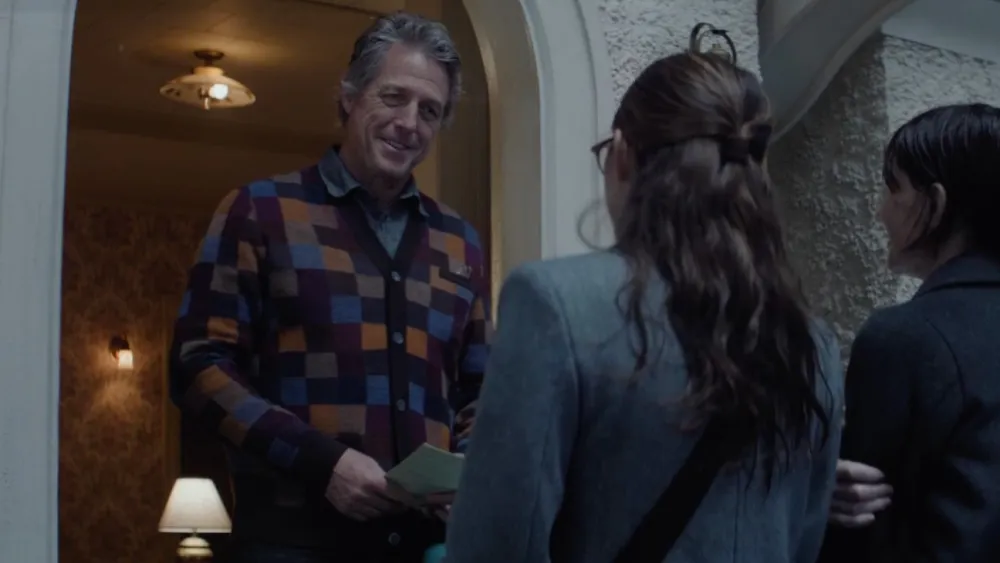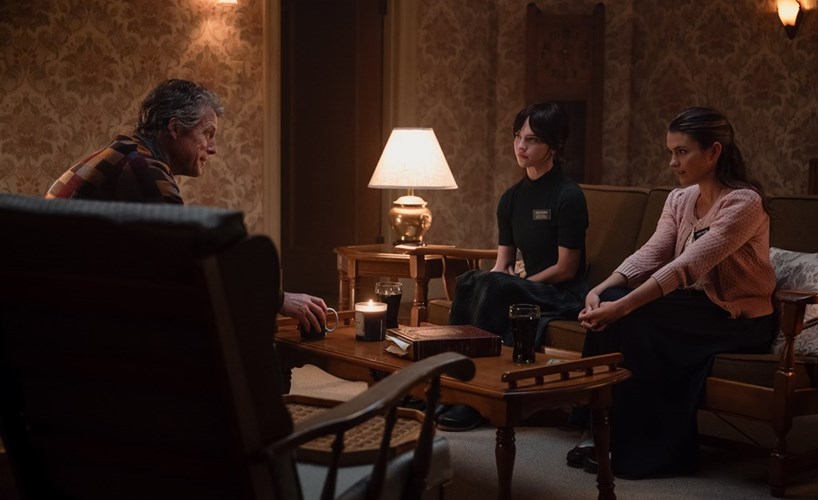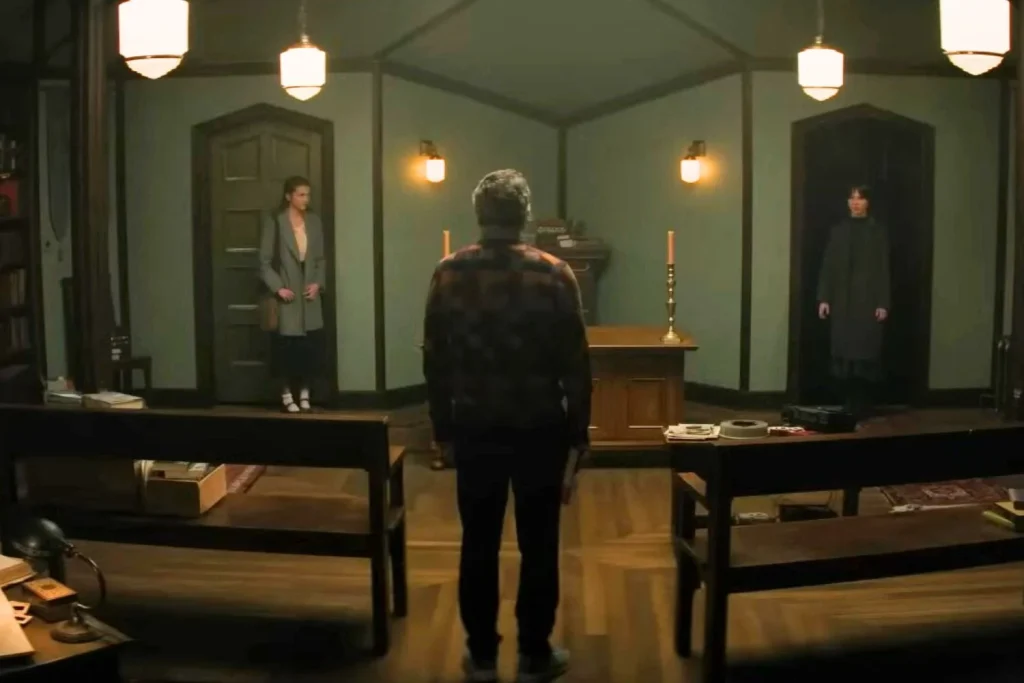
Heretic stands as a compelling entry in the psychological horror genre, directed by the duo Scott Beck and Bryan Woods. The film delves into the complexities of faith, manipulation, and the human psyche, presenting a narrative that is both thought-provoking and unsettling. With a standout performance by Hugh Grant, Heretic challenges viewers to confront their beliefs and the nature of persuasion.
The story follows two young Mormon missionaries, Sister Barnes (Sophie Thatcher) and Sister Paxton (Chloe East), as they embark on their routine door-to-door evangelism. Their mission takes a dark turn when they encounter Mr. Reed (Hugh Grant), a reclusive and enigmatic man who invites them into his home under the pretense of engaging in theological discussion. Once inside, the missionaries find themselves ensnared in a psychological game, as Mr. Reed systematically deconstructs their faith and tests their convictions, leading to a harrowing battle of wills.
Hugh Grant delivers a transformative performance as Mr. Reed, shedding his typical charming persona to embody a character that is both charismatic and menacing. His portrayal adds depth to the antagonist, making him a compelling figure who captivates and terrifies in equal measure. This career-defining role is a testament to Grant’s versatility, cementing his ability to transcend genre boundaries.
Sophie Thatcher and Chloe East shine as Sisters Barnes and Paxton, respectively. Their portrayals capture the innocence and determination of young missionaries, and their on-screen chemistry brings authenticity to their relationship. As their characters face mounting psychological terror, both actresses convey a palpable sense of fear and resilience that anchors the film’s emotional core.

One of the standout elements of Heretic is its dialogue. The exchanges between Mr. Reed and the missionaries are laden with philosophical undertones, serving as a battleground for ideological conflict. These moments are both gripping and intellectually stimulating, challenging viewers to grapple with the same questions as the characters.
The production design deserves special praise. Mr. Reed’s home, with its muted greens and intricate religious décor, exudes an eerie tranquility that gradually gives way to a more sinister atmosphere. This meticulous attention to detail reinforces the themes of the film, creating an environment that is as much a character as the people who inhabit it.
The sound design is equally effective. The sparse use of ambient noises—creaking floorboards, faint whispers, distorted hymns—creates an unsettling auditory landscape. While the score occasionally leans too heavily on loud stingers, the overall soundscape succeeds in amplifying the film’s tension.
The story begins with enormous promise, offering a nuanced exploration of faith, manipulation, and human vulnerability. The first half of the film is masterfully written, brimming with tension, and enriched by atmospheric production design. The house of Mr. Reed—with its subtle religious motifs and oppressive ambiance—perfectly reflects the psychological unease at the heart of the narrative. With cinematography enhancing this mood, employing tight framing and shadowy lighting to heighten the sense of claustrophobia.

However, the film’s second half falters. What begins as a slow-burning, intellectually engaging exploration descends into clichéd horror tropes. The abrupt shift in tone undermines the careful groundwork laid in the first act, leaving viewers disoriented and dissatisfied. The pacing, which is masterful in the first half, becomes uneven as the film transitions into more conventional horror territory. This tonal inconsistency robs the story of its earlier sophistication, diminishing its impact. It feels as though the filmmakers promised a Michelin-star meal but, after a long and anticipation-filled journey, served up fast food—a narrative detour that is as frustrating as it is disappointing.
Heretic is a film of two halves. The first act is nothing short of extraordinary: a masterclass in tension, atmosphere, and character-driven storytelling. However, the second half feels like a missed opportunity, abandoning its thematic depth for a formulaic horror ending that disappoints. The shift in quality is akin to a long drive filled with anticipation, only to arrive at a McDonald’s instead of the gourmet meal you were promised.
Still, the film is worth watching for its strengths—particularly the performances, dialogue, and production design. Heretic may not fully realize its potential, but it remains an ambitious and thought-provoking entry in the psychological horror genre.
Rating: 7.5/10 ★★★★★★★½☆☆
